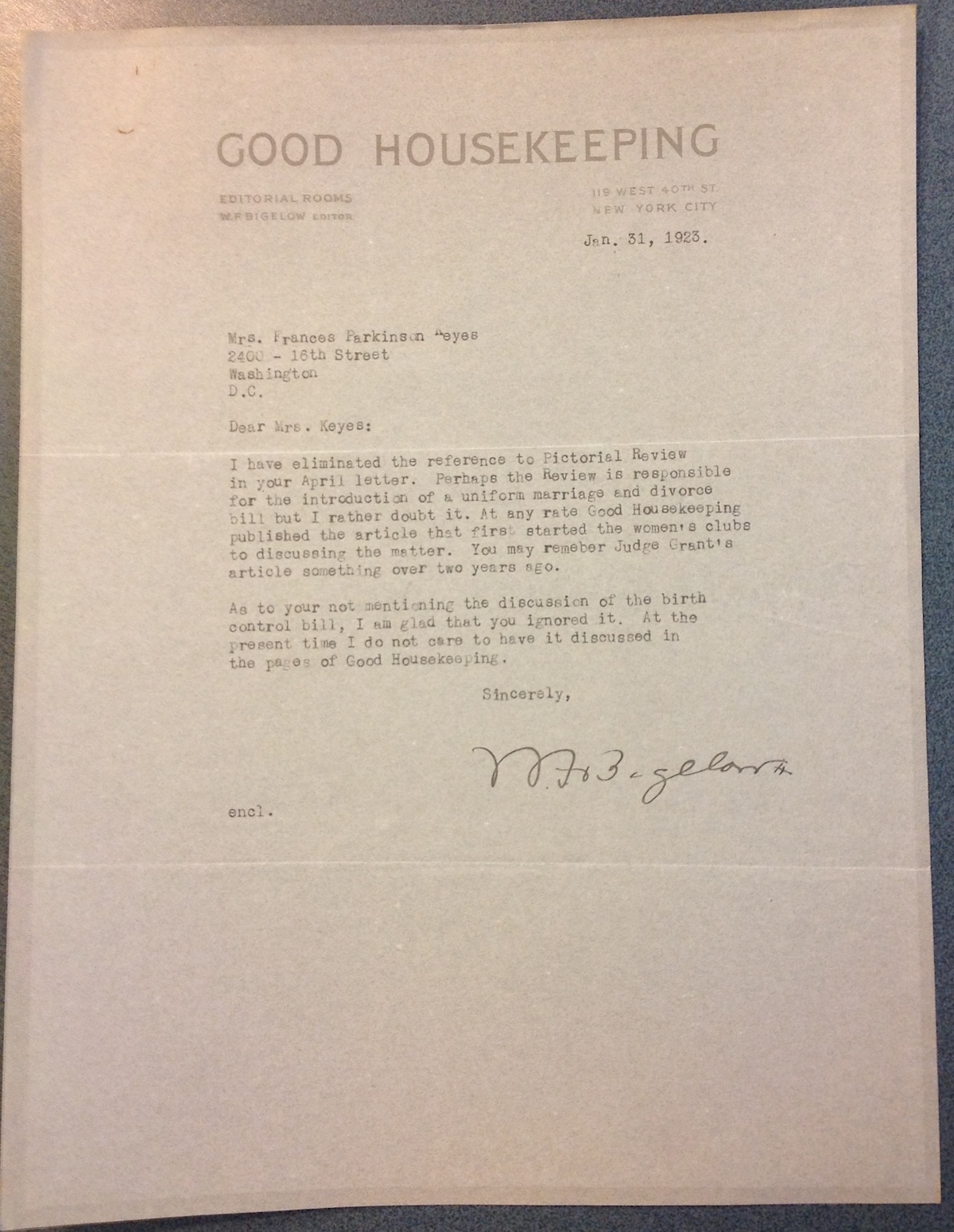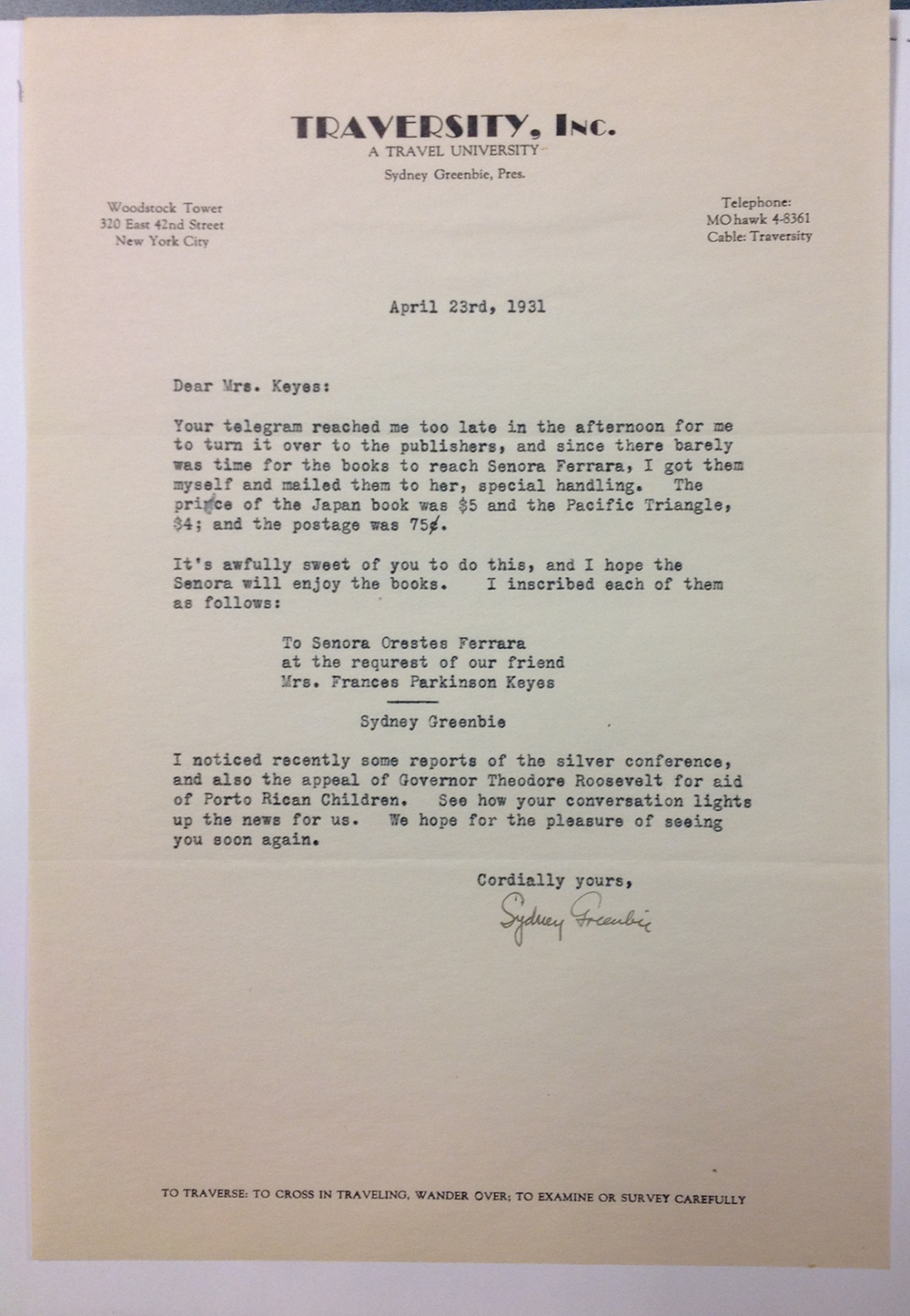Life in Washington, D.C. : Women's Agenda: Politics
Keyes disagreed with old-fashioned traditions to a certain extent in which she believed that no woman is perfect, but she should still be given the opportunity to try to be. Women weren’t given these opportunities if they didn’t have equal rights. In her eyes, “Women are certainly ‘people.’ They are certainly ‘equal’ to men.”[i] The role of women in the public and in politics had shifted tremendously by the time the Keyes got to Washington, and Frances Keyes believed women were more self-respecting and should therefore fight for their rights. It was only fair that women had a say in the affairs that affected them, including politics. She stated, “Though they are still untrained in politics, there seems to be no reason why they should not acquire experience and develop talent along these lines; so far they have proved that they can do anything that men can do and do it well,” and she certainly proved her theory right.[ii]
D.C. provided Keyes with opportunities and resources to spread her influence and ideas regarding equal rights for women in politics, and in the public and private spheres. She accepted these challenges with open arms and no longer felt “mentally starved” as she once described herself. By “sharing her feast,” Keyes vocalized her support for women and encouraged others to do so.[iii]

Letter from the editor of Good Housekeeping to FPK explaing that he will have to take out certain political points she has put in her past letters.
Keyes was always working for the rights of women and children and perhaps one of the most memorable chapters of her story of her life in D.C. is of her battle to get the Sheppard-Towner Bill passed.[iv] Also known as the “Maternity Bill,” the bill would allow for the care, nursing, and education of expectant mothers, who were dying as a result of a lack of care and attention. Senator Sheppard’s bill was supported before the Senate Public Health Committee and called for an annual appropriation of $4,000,000 to be spent throughout the states to ensure women were granted protection for maternity and infancy.[v] Her main argument was that women are the heart of a household, they keep everything together, and if they don’t have money to be taken care of and stay healthy, they will not be able to keep the households the way they need to be. If this happens, then the households will fall apart.

